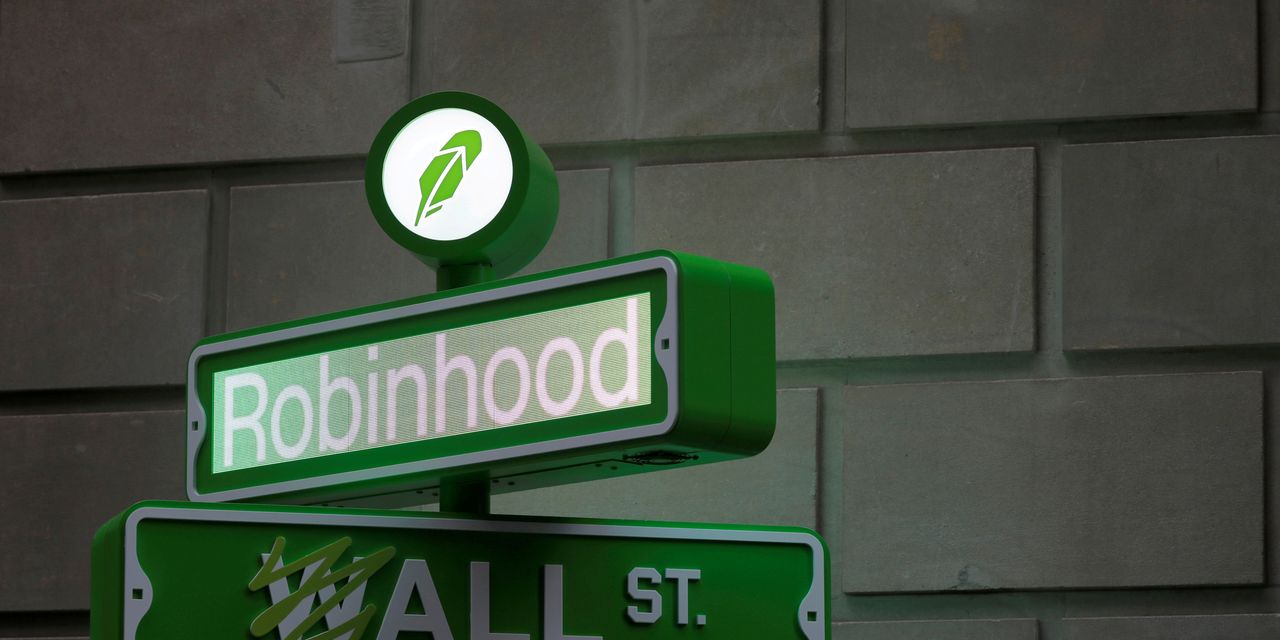
Robinhood Markets Inc. HOOD -6.45% has scored another victory in its legal battles with customers upset about the brokerage’s handling of last year’s meme-stock trading frenzy.
A federal judge rejected a lawsuit filed by investors who lost money when the brokerage blocked the ability to purchase shares of GameStop Corp. GME -9.43% , AMC Entertainment Holdings Inc. AMC -8.91% and other hot stocks on Jan. 28, 2021. The suit accused Robinhood of negligence and breaching various duties to its customers.
In a ruling dated Wednesday and released Thursday, U.S. District Judge Cecilia Altonaga of the Southern District of Florida sided with Robinhood.
The Menlo Park, Calif.-based company had sought to dismiss the suit, arguing that the investors had signed a customer agreement that gave Robinhood broad latitude to restrict trading in securities without prior notice.
“No doubt, plaintiffs were gravely disappointed when Robinhood suspended purchases of the meme stocks and their holdings declined in value,” Judge Altonaga wrote. “But the law does not afford relief to every unfulfilled expectation.”
The ruling came just ahead of the first anniversary of the meme-stock trading restrictions. Robinhood was among a number of brokers that imposed similar limits on the same day. The brokers’ moves punctured a huge rally in GameStop and AMC fueled by small investors banding together on social media to pump up the stocks.
In November, Judge Altonaga dismissed a related lawsuit in which investors accused Robinhood of colluding with electronic trading firm Citadel Securities to stop buying in meme stocks. She cited a lack of evidence for the collusion allegations.
Robinhood welcomed the new court ruling. “Once more, this confirms that the unfounded allegations against Robinhood have no basis,” the company said in a written statement.
A lawyer for the investors criticized the decision and said her side planned to appeal.
“Our case brought to light Robinhood’s own internal documents, which show they allowed sales and not purchases to cover their liquidity issue at the expense of customers,” said Natalia Salas, a partner at the Ferraro Law Firm in Miami.
Last January’s trading restrictions hurt Robinhood’s reputation and sparked a flurry of lawsuits. Robinhood Chief Executive Vlad Tenev was grilled about the move in a congressional hearing.
Robinhood and other brokerages said they limited buying in meme stocks in response to huge margin calls from the National Securities Clearing Corp., which clears U.S. stock trading. The NSCC can demand additional collateral from brokers when markets turn volatile, as they did during the GameStop frenzy.
Still, the events of Jan. 28, 2021, have become a rallying cry for many individual investors active on Reddit and Twitter. Some view the trading restrictions as a sign of Wall Street’s unfair treatment of ordinary Americans.
Write to Alexander Osipovich at [email protected]
Copyright ©2022 Dow Jones & Company, Inc. All Rights Reserved. 87990cbe856818d5eddac44c7b1cdeb8
Appeared in the January 28, 2022, print edition as ‘Judge Rejects Suit Against Robinhood.’








